20+ Samples of Employment Questionnaires
Check out the following samples to gain insight on what to expect from an employment questionnaire.
-
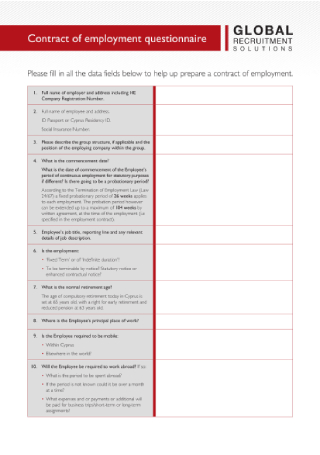
Contract of Employment Questionnaire
Draft an employment contract for clients by having them fill out a questionnaire.
-
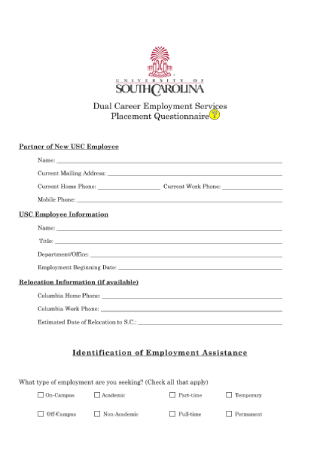
Dual Career Employment Services Placement Questionnaire
Provide employment assistance to newly hired staff and their partners through a questionnaire.
-
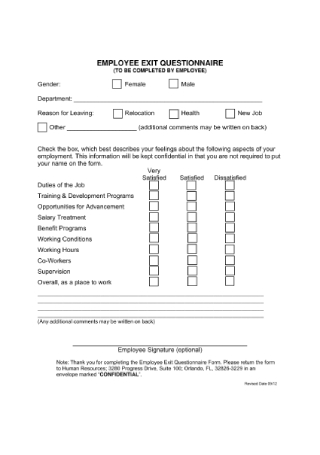
Employee Exit Questionnaire
Use a questionnaire to find out why an employee chooses to leave your company.
-
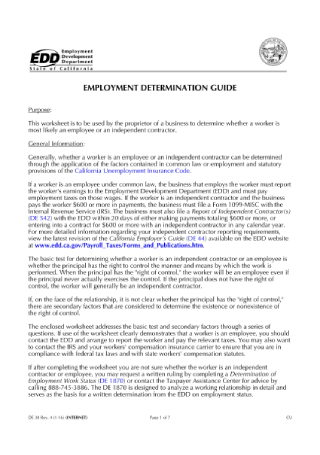
Employment Determination Questionnaire
Find out the employment status of staff members with a questionnaire.
-
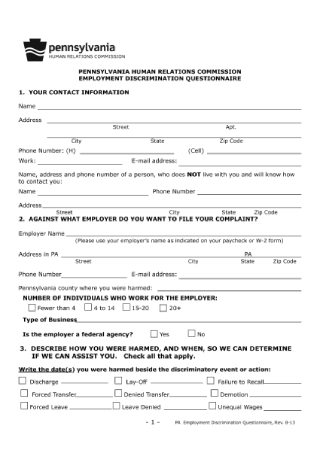
Employment Discrimination Questionnaire
Obtain information regarding suspected discrimination among employees using a questionnaire.
-
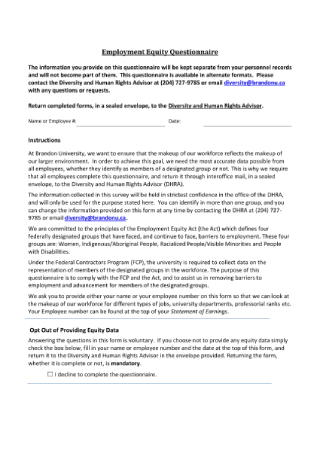
Employment Equity Questionnaire
Eliminate barriers in the workplace by using a questionnaire to conduct your study.
-
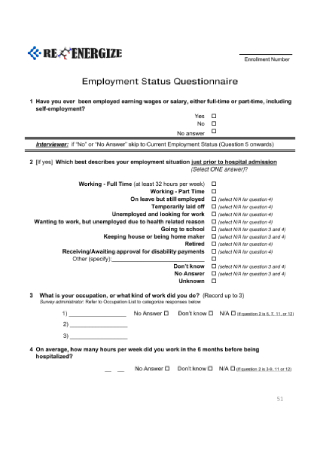
Employment Status Questionnaire
Advise an appropriate contractual arrangement and payment method for employees using an ESQ.
-
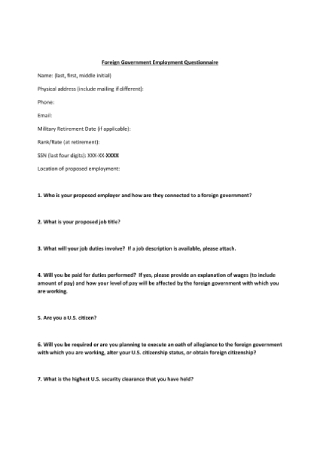
Foreign Government Employment Questionnaire
Evaluate applicants for pre-approval with the help of a questionnaire.
-
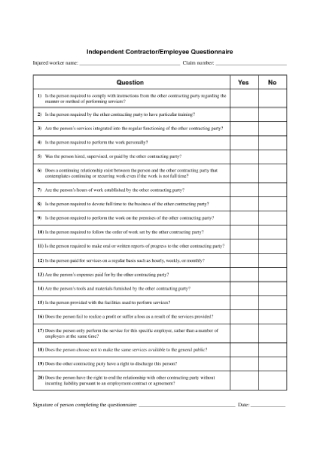
Independent Contractor or Employee Questionnaire
Use a questionnaire as a tool to determine if an individual is a contractor or an employee.
-
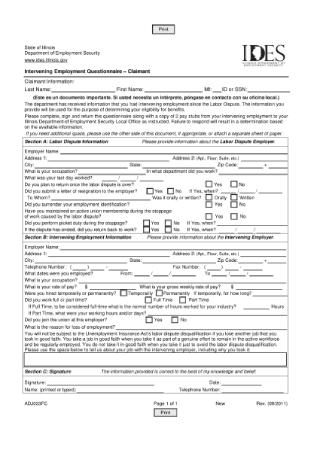
Intervening Employment Questionnaire
Determine an employee’s eligibility for benefits through the use of a questionnaire.
-
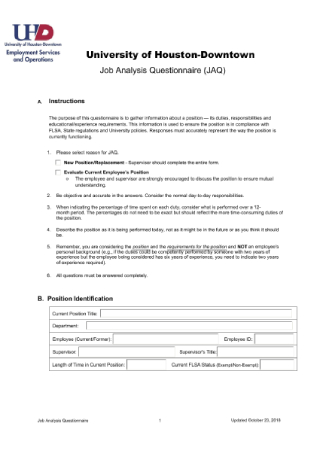
Job Analysis Questionnaire
Assess the characteristics and job skill level of applicants with the help of a questionnaire.
-

Online Pre-Employment Health Assessment Questionnaire Guide
Supply employers with relevant data on your medical history using the given guidelines.
-
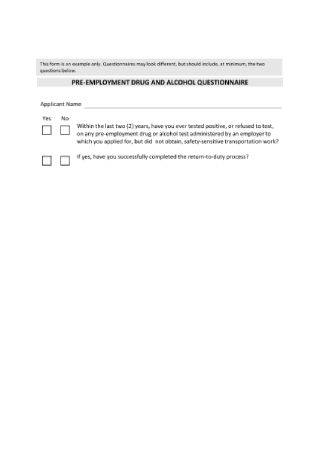
Pre-Employment Drug Alcohol Questionnaire
Require candidates for the job to undergo testing for abused substances using a questionnaire.
-
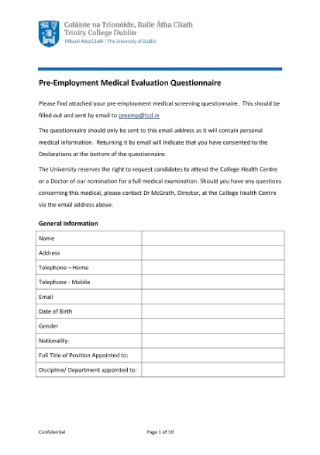
Pre-Employment Medical Evaluation Questionnaire
Prepare a questionnaire to easily conduct a full medical examination on applicants.
-
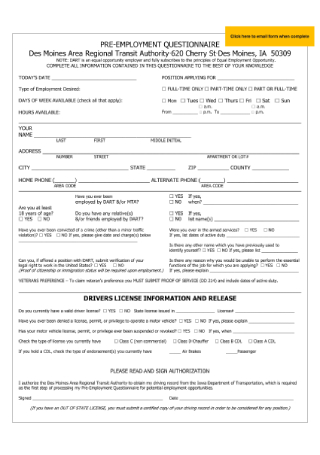
Pre-Employment Questionnaire
Identify candidates who qualify for the job by using a questionnaire for pre-employment evaluation.
-
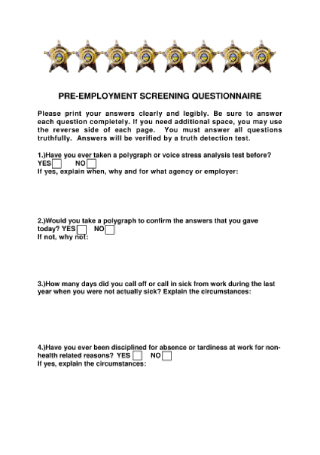
Pre-Employment Screening Questionnaire
Eliminate unqualified applicants from your screening list by using a pre-employment questionnaire.
-
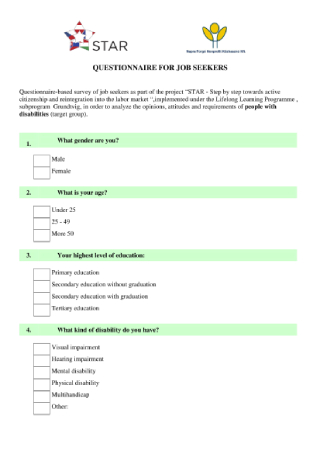
Questionnaire for Job Seekers
Assist job seekers in finding employment by referring to the results of a questionnaire.
-
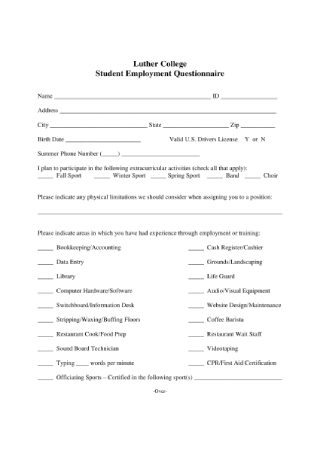
Student Employment Questionnaire
Identify areas of improvement in student employment programs by utilizing a questionnaire.
-
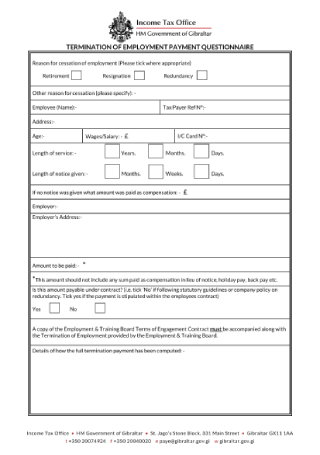
Termination of Employment Payment Questionnaire
Compensate terminated employees appropriately by using a questionnaire.
-
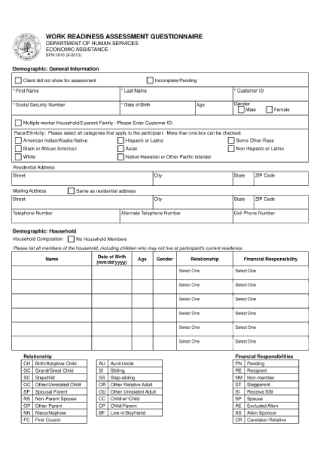
Work Readiness Assessment Questionnaire
Ensure workers have the skills necessary to maintain employment through a questionnaire.
FREE Answer an Employment Questionnaire s to Download
20+ Samples of Employment Questionnaires
What Is an Employment Questionnaire?
Tips for Answering an Employment Questionnaire
What Is an Employment Questionnaire?
Employment questionnaires are used by employers to obtain valuable information about a job applicant prior to an interview. This is an essential stage of the screening process because it allows a company to identify candidates who closely qualify for the job role available. This will also help narrow down a large pool of applicants into a selected few by determining leading candidates effectively. It’s a convenient way to test and evaluate the behavior and skills of an applicant and to assess how well these attributes will benefit the needs of the company.
While some candidates may feel as if the system unfairly excludes them from the opportunity to really prove themselves, this is a testing tool that the organization can use to help minimize turnover and boost productivity with its recruitment efforts.
Tips for Answering an Employment Questionnaire
Good companies don’t make it easy for anyone to join their workforce. Employers are well aware that their hiring decisions are crucial to the current and future state of the company in more ways than one. Thus, they make sure that the people they hire, train, and manage are qualified enough to fulfill their job duties effectively. One way to do so is by designing different types of employment questionnaires for applicants and existing employees to answer. Although these questionnaires may seem intimidating at first, answering them would be a breeze with the help of the right techniques.
